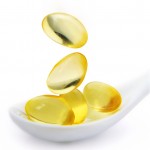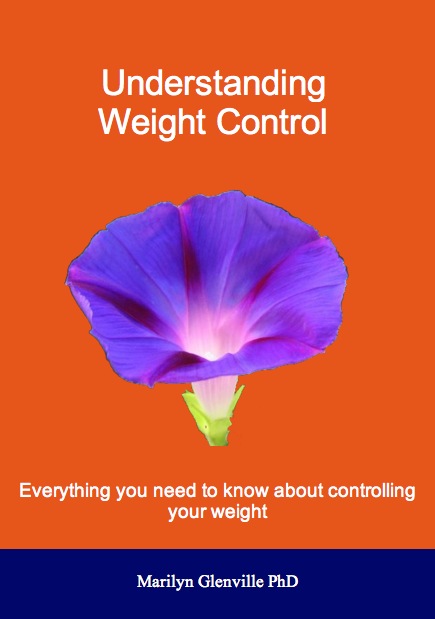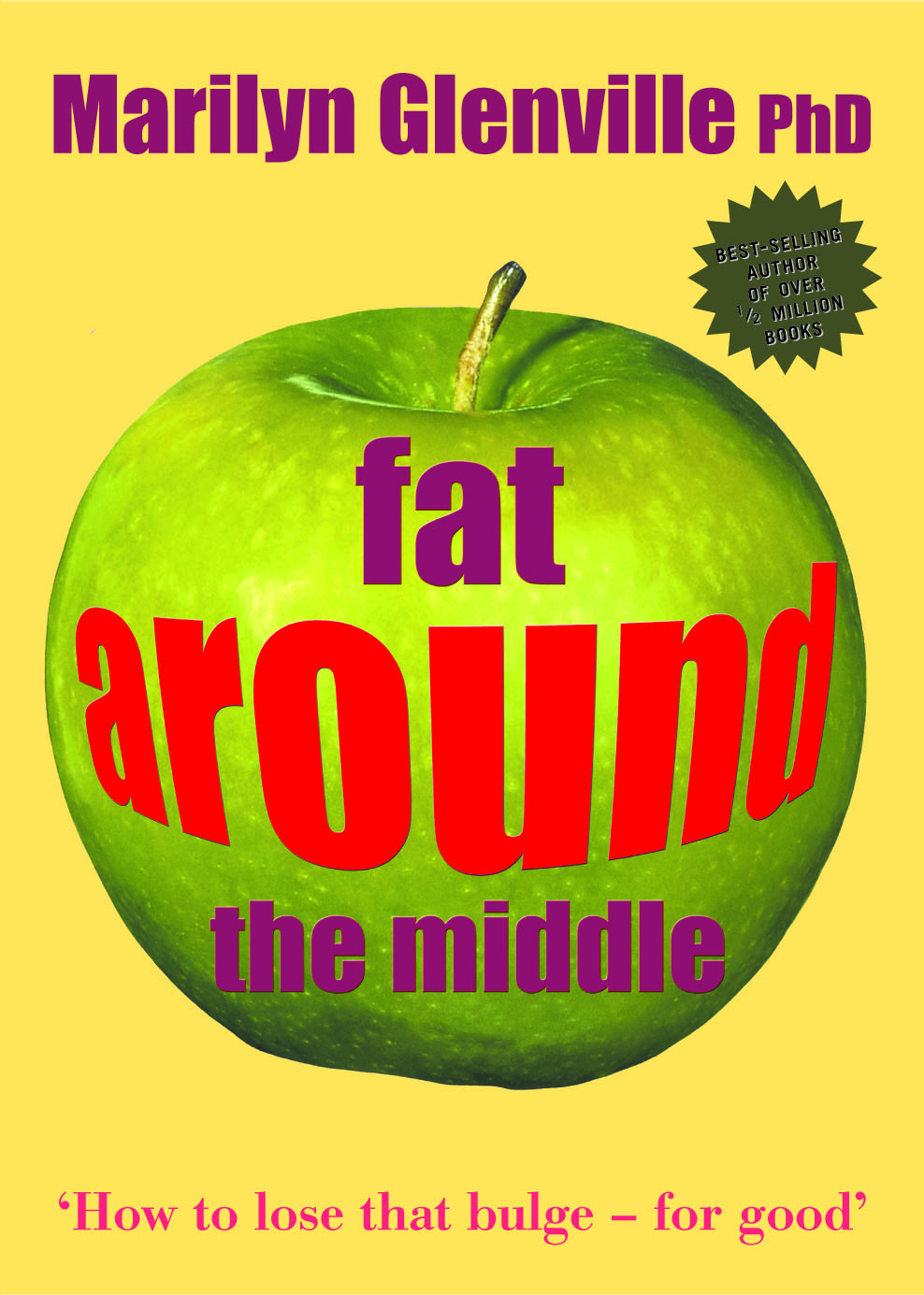How to Lose Weight Naturally

Your ideal weight
How do you know what your ideal weight should be? The most commonly accepted measure of whether or not someone is overweight is their Body Mass Index (BMI).
Your BMI is the ratio of your height to your weight and is calculated as follows:
BMI = your weight in kg divided by the square of your height in metres.
For example if my weight is 63.5 kg (10 stone) and my height is 1.68m (5ft 6in), my BMI is 63.5 – 1.68 x 1.68 = 22.5
What does your BMI mean?
| Under 20: | underweight |
| 20-25 | normal |
| 25-30 | overweight |
| 30-40 | obese |
| Over 40: | dangerously obese |
But, as a measure, BMI does have its disadvantages in that it cannot differentiate between fat and muscle. Muscle tends to be heavier than fat, so a well-muscled, extremely fit person might register a BMI as high as an un-fit rather fat person.
Similarly, it is quite feasible to be overfat and yet not overweight, and to have a normal BMI. That doesn’t mean you’re healthy
Body Fat
The best measurement to know whether you should lose weight is the body fat percentage. One of the most convenient ways to measure body fat is to use an electronic machine that uses bioelectrical impedance. Sound confusing? It’s simple to understand. An electric current is passed though the body and the machine measures how long it takes for the current to come out, providing you with a measurement of your total body fat. Lean tissue is a much better conductor of electricity than fatty tissue, so that machine is able to measure the percentage of fat in the body.
These are available for use in the home, look just like ordinary scales and can also be used to weigh yourself normally.
Healthy Body Fat
| Age | Body Fat Percentage |
| 18-39 | 21-32% |
| 40-59 | 23-33% |
| 60-79 | 24-35% |
The causes of weight gain
There are many reasons why you may gain weight and the cause may not be one factor but a combination of a number of different ones.
Dieting
Yes, one of the main causes of weight gain is dieting. Dieting makes you fat. As you reduce your food intake to lose weight, your body put itself on ‘famine alert’. It gets the impression that food is scarce and therefore it slows down your metabolism to get the best use of the small amount of food it is receiving.
When you say you want to lose weight, what you actually want to lose is fat. If you lose weight rapidly, almost 25 percent of that weight loss can be made up of water, muscle and other lean tissue.
The reason for this is that your body is actually programmed to hold on to fat. So in times of what your body considers to be a ‘famine’, it will actually go as far as breaking down muscle and losing water in order to hold on to its fat reserves. Faddy diets suggest that you can lose up to 10 pounds in a week, but remember this: it is physically impossible to lose more than 900g (2lb) of body fat in a week.
Furthermore, if you lose weight quickly by restricting your intake and then go back to eating normally, a much higher percentage of the food you eat is laid down as fat. Why? Because your body wants to build up extra fat stores, in case this type of famine occurs again. There’s also the question of metabolism. When you crash diet, your metabolism slows down to conserve energy and make the most out of the small amounts you are eating. What happens when you go back to eating normally? Well, everything you eat is being dealt with at a much slower rate and more fat is stored.
Too much food and not enough exercise
This is the obvious reason, because if you eat more than you burn off then you are going to gain weight. The idea has been that if the number of calories going into your body is less than the calories being used up by bodily activity and exercise, then you will lose weight. Nowadays, we know that the type of calories is also an important factor in this equation. In other words, you need to consider what type of calories you are eating – whether they come in the form of fat, carbohydrates or protein.
The type of food you eat
Researchers have found that fat and thin people can eat roughly the same number of calories, but it seems that the type of food they are eating is different.
There is a very popular theory that goes something like: too much fat makes you fat. This may be right in principle (large amounts of saturated fat in the diet are not healthy), but it’s important to remember that some fats are absolutely essential, hence their name: essential fatty acids.
The result of this theory is that women go on low-fat and no-fat diets, which are dangerous. Furthermore, no-fat and low-fat food tends to be high in sugar and salt, which is required to make it palatable. This is the type of thing that makes you fat. In fact, it’s sugar and other foods that are ‘fast-releasing’ that will encourage weight gain, and here’s why:
The speed with which a food increases blood sugar (in other words, whether it is ‘fast-releasing’ or ‘slow-releasing’) determines whether or not it will cause you to gain weight. If your blood sugar levels rise very quickly your body has to secrete more insulin in order to control it.
Every time you eat, your body has a choice: it can either burn that food as energy or store it as fat. Researchers have found that high insulin levels cause you not only to change your food into fat, but they also prevent your body from breaking down previously stored fat.
These fast-releasing foods include anything that contains sugar and refined flour, such as cakes, biscuits, pastries, and other ‘treats’.
If you crave sweet or starchy foods, feel tired during the afternoon, light-headed, dizzy or shaky if you miss a meal or wake up feeling tired after a full night’s sleep, then your blood sugar levels are probably fluctuating too much.
Underactive thyroid
An underactive thyroid (hypothyroidism) can be at the root of gradual weight gain, and it should be checked by your doctor.
The diagnosis of hypothyroidism is usually made almost exclusively from measurements of Thyroid Stimulating Hormone (TSH) and Thyroxine (T4) levels found in blood tests. However this method is thought to be largely ineffective at diagnosing cases of milder hypothyroidism, more accurately termed ‘thyroid dysfunction’. Laboratory blood test techniques give information only about the hormonal status of a patient at a particular point in time. The elevation of hormone levels in urine however, assesses tissue exposure to thyroid hormones over a 24-hour period.
The urine thyroid test therefore serves as a valuable tool for detecting thyroid dysfunction that may otherwise go undetected through standard blood tests. It is important to use this test together with other indicators of thyroid function, such as body temperature, symptoms and standard blood thyroid tests. To check your levels of T3 and T4 click on Thyroid Hormone Test (Urine)
Nutritional deficiencies
Food can be converted into fat or energy. You can either store what you eat, which means you will probably put on weight, or you can use it for energy. Whether food is burned or stored is determined by a number of chemical reactions that take place in your body. These are activated by enzymes, which are, in turn, dependent upon vitamins and minerals. Therefore, if you are deficient by even a small amount in certain vitamins and minerals, you will gain weight. Fortunately there are now some very good tests that can check for these deficiencies. Click Mineral Deficiency Test with Supplement Programme (Hair).
Prescription drugs
Weight gain is often linked to certain medications, such as HRT, the contraceptive pill and steroids. Some antidepressants can also cause increased appetite and weight gain. If you have to take medication, discuss your weight problem with your doctor and ask if there are alternative drugs you could take. Never stop taking any drug without the advice and supervision of your doctor.
Food allergy/Intolerance
Could a food allergy/intolerance be making it difficult for you to lose weight? A good clue would be whether you crave a particular food that you eat frequently. Once a food intolerance exists the food becomes mildly addictive and you can feel compelled to eat it. If you are intolerant to a particular food, your body can react by storing it away instead of using it for energy. If you eat a lot of foods to which you are allergic, there will undoubtedly be weight gain.
There are two types of reactions.
- Type 1 (classic allergy). In this type of allergy, you will experience a reaction immediately after contact with an allergen (such as shellfish or peanuts, for example).
- Type 2 (Intolerance). Here the reaction can take place between one hour or three days after ingesting the food. Symptoms such as weight gain, bloating, water retention, fatigue, aching joints and headaches can all be due to a Type 2 allergy.
It is now possible to have a blood test that analyses the effects of 217 different foods and food additives. This test measures the release of certain chemicals that are responsible for the symptoms of food intolerance. Once you find out what foods are causing problems, they can be avoided for a short period of time. Unlike the foods implicated in Type 1 allergies, you do not have to avoid these foods indefinitely. Giving your body a rest from them, and then ensuring that they don’t make up too large a percentage of your diet will probably do the trick. If you would like to know more about this test click Food Allergy/Intolerance Test (Blood)
Yeast overgrowth
Do you suffer from any of these symptoms?
- sugar cravings
- cravings for foods such as wine, bread, cheese
- migraines or headaches
- chronic thrush
- inability to lose weight
- tired all the time
- often feel spaced out
- feel drunk on a small amount of alcohol
- feel bloated and have flatulence
If these symptoms seem familiar, then you may have a yeast overgrowth such as candida albicans.
We all have the yeast ‘candida’ in our gut, but is usually controlled by other bacteria. When the immune system is compromised (because of illness, for example, or a poor diet), the proportion of ‘healthy’ bacteria can be altered, causing candida to grow out of control
This overgrowth can also be caused by overuse of antibioctics, the contraceptive pill, HRT, steriods and stress. If you would like to know more about this test Digestive Stool Test).
(If you are experiencing chronic thrush, then you should always see your doctor as this can be a symptom of diabetes and needs to be ruled out.)
What are your choices?

There is no ‘quick fix’ to losing weight even though drugs and surgery are often offered. It is easy to try one diet after another but this will never be a long-term solution. The only way to lose weight safely and to keep it off is to change your eating habits, and then ensure that those new, healthier eating habits become a way of life.There’s no point in adopting strict measure that prevent you from living life to the fullest. After all, food is there to be enjoyed. You need a way of eating where you can eat out with friends, socialise without having to forego the meal. Real and permanent fat loss (not just weight loss) has to be gradual and it takes time. The important thing, however, is that this approach works, and your weight will stay off.
Dietary changes
Follow the recommendations from the nutrition section. In particular, reduce or eliminate foods made with white flour or white sugar, and avoid refined foods where the fibre and goodness has been stripped away. These are ‘fast-releasing’, and can have detrimental effects on blood sugar and then your weight.
Cut out all sugar and artificial sweeteners. You will have to become a label reader because sugar can be added to almost anything, including savoury foods such as baked beans, tomato ketchup, and even bread. In order to make sugar content appear lower, manufacturers list all the different types of sugar separately (look for words ending in -ose, such as fructose, glucose and sucrose).
Don’t be fooled. They all have relatively the same effects on our bodies.
A very simple tip to help with weight loss is to chew well and to take your time when eating. It takes your brain 20 minutes to register that you are full, so if you eat more slowly, you will actually want to eat less.
When you eat matters
What is important to know is that skipping meals can slow down your metabolism because your body thinks there is a shortage of food. It’s better to eat little and often, to keep your blood sugar levels (and your metabolism) steady.
Supplements

Multivitamin and Mineral
A good quality multivitamin and mineral would form the foundation of your supplement programme to make sure that you are getting a ‘little bit of everything’. You then add in the nutrients listed below in slightly higher amounts which are known to be helpful for the weight loss.
B vitamins
These are important vitamins in terms of weight loss, and they are often known as the ‘stress’ vitamins. Vitamins B3 and B6 are especially important because they help to supply fuel to cells, which are then able to burn energy. Vitamin B6 together with zinc is necessary for the production of pancreatic enzymes which help you to digest food. If your digestion is good, you will be much more likely to use your food efficiently, instead of storing it as fat.
Vitamins B2, B3 and B6 are necessary for normal thyroid hormone function production, so any deficiencies in these can affect thyroid function and consequently affect metabolism. B3 is also a component of the glucose tolerance factor which is released every time your blood sugar rises.
Vitamin B5 is involved in energy production and helps to control fat metabolism.
As you can see, the B vitamins as a group are important and the best way to get them is in a good B-complex supplement.
Chromium
This mineral has been the most widely researched nutrient in relation to weight loss Chromium is needed for the metabolism of sugar and without it insulin is less effective in controlling blood sugar levels. This means that it is harder to burn off your food as fuel and more may be stored as fat. It also helps to control levels of fat and cholesterol in the blood. One study showed that people who took chromium over a ten-week period lost an average of 1.9kg (4.2lb) of fat while those who took a dummy tablet lost only 0.2kg (0.4lb).
Zinc
This is an important mineral in appetite control and a deficiency can cause a loss of taste and smell, creating a need for stronger tasting foods (which tend to be sweeter, saltier and more fattening!) Zinc also functions with vitamins A and E to manufacture the thyroid hormones.
Co-enzyme Q10
Co-enzyme Q10 is needed for energy production. It is found in all the tissues and organs in the body. As we get older we may become deficient, which results in a reduction of energy. It has been used to help heart problems, high blood pressure, gum disease and immune deficiencies.It has also been shown to help with weight loss. A study showed that people on a low-fat diet doubled their weight loss when taking Co Q10 compared to those using diet alone.
Amino Acids
Amino acids are the building blocks of the protein that you eat. Certain amino acids can be very helpful for PCOS as they can improve your insulin sensitivity and also can have an effect on weight loss e.g. n-acetyl cysteine, carnitine, tyrosine, arginine, glutamine, isoleucine, leucine and valine.
Furthermore, by adopting a healthier lifestyle you will be more likely to prevent weight issues which is discussed in detail in the rest of this ebook which you can read by clicking on Understanding Weight Control ebook at The Natural Health Practice
Tests

Mineral Deficiency Test with Supplement Programme (Hair)
Find out what the mineral and heavy toxic levels are in your body
This test measures the deficiency and excess levels of 13 different minerals and 6 heavy toxic metals that may be present in your body. Find out more – Mineral Deficiency Test with Supplement Programme (Hair)
Food Allergy/Intolerance Test (Blood)
Do you have an allergy? Find out with this simple test.
This test will help you find out what foods you may be allergic to or reacting to, which may cause weight gain, bloating, fatigue etc and let you know what foods you should avoid eating.
If you have a yeast overgrowth, it can be detected in a stool sample. Find out more with this teat.
Metabolic Syndrome (Insulin Resistance) Test (blood)
Are you insulin resistant?
Insulin is a powerful hormone secreted by the pancreas in order to control the way the body stores and uses carbohydrates (sugars), fats and protein. When we eat refined or sugary foods our blood sugar level rises quickly. In response to this dangerous situation, our pancreas releases insulin to take the sugar out of the blood and store it in our cells.
If the body is continuously exposed to high levels of insulin, as it is if we regularly consume sugary or refined foods, the insulin receptor cells of the body become inefficient and resistant to the effects of insulin, leaving blood sugar levels high. Recognising that blood sugar levels are still high, the pancreas produces even more insulin to compensate. You therefore have a situation of high blood sugar and high insulin levels, both of which are dangerous to your health.
This is a fasting blood test which measures your insulin level and it also measures cholesterol, HDL (‘good’ cholesterol) LDL(‘bad’ cholesterol), high sensitivity C-reactive protein (a marker of inflammation) and glycosolated haemoglobin (HbA1c) which measures your average blood glucose level over two or three months.
After three months you would then have a re-test in order to monitor your progress and adjust your supplement programme according to your new condition.
If you need help in obtaining any of the supplements or tests mentioned above, click, weight control options at The Natural Health Practice. They can supply all of them for you online or if you prefer to talk to somebody first you can also order by mail order on the telephone. The products supplied by this company are always of the highest quality.
Plan of Action
Nutrition
Ensure you are getting the right nutrition.Follow the dietary recommendations outlined in the free The Foundation of Health ebook For more information on the special dietary recommendations for weight control, read the rest of the ebook on Understanding Weight Control ebook at The Natural Health Practice
Supplements
The supplement programme below should be taken for at least three months in order to achieve best results
Nutrients & amounts
| Chromium | 200µg | Amino Acids | n-acetyl cysteine, carnitine, tyrosine, arginine, glutamine, isoleucine, leucine and valine |
| Co-enzyme-Q10 | 25mg | Omega 3 Plus fish oils | (700mg EPA and 500mg DHA per day) |
| B Vitamins | 25mg | Vitamin C | 1000mg |
To avoid having to purchase numerous supplements for all of the above and to make the process easier, I have put together a supplement programme which contains all the nutrients mentioned above and in the correct dosages. For more information about these click Weight Loss Supplement Programme.
In my book ‘Fat Around the Middle’ I explain how to lose weight for good by following a simple, easy to follow, 3 month weight loss plan and I also give in great detail a list of the most important nutrients and herbs required in order to help you.
If you would like to order these special supplements now, you can do so through the Natural Health Practice by clicking Weight Loss Supplements at the Natural Health Practice.
| At the end of three months you should reassess your condition and adjust your supplement programme accordingly. |
Tests
The tests below have been specially selected to be the most helpful if you are concerned about your weight.
Mineral Deficiency Test with Supplement Programme (Hair)
Food Allergy/Intolerance Test (Blood)
Metabolic Syndrome (Insulin Resistance) Test (blood)
After three months you would then have a re-test in order to monitor your progress and adjust your supplement programme according to your new condition.
If you need help in obtaining any of the supplements, herbs or tests mentioned above, click, Weight Control options at The Natural Health Practice. They can supply all of them for you online or if you prefer to talk to somebody first you can also order by mail order on the telephone. The products supplied by this company are always of the highest quality.
Read More

At the end of the ebook is a practical step by step summary of what you can do to help yourself.
If you would like to read the rest of this ebook click, Understanding Weight Control ebook at The Natural Health Practice and you will be given details of how you can download the whole ebook.

The contents of this site are for information only and are intended to assist readers in identifying symptoms and conditions they may be experiencing. This site is not intended to be a substitute for taking proper medical advice and should not be relied upon in this way. Always consult a qualified doctor or health practitioner, especially if you are pregnant, taking the pill or on any medication. Your situation will need to be looked at individually and you should not attempt to self treat. The author and publisher cannot accept responsibility for illness arising out of the failure to seek medical advice from a doctor.
The views expressed by third parties placing material on these pages are not representative of the views of the author or publisher. The Author and Publisher cannot monitor the content not produced by us and has not reviewed all the third party material published on this site and the Author and Publisher accept no liability whatsoever in relation to the content of third party material placed on these pages.

